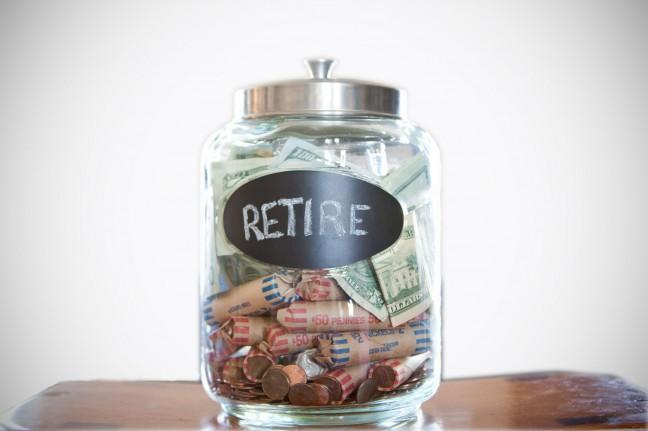A recovery plan that would reduce pension paychecks to keep the Central States Pension Fund afloat could ultimately drown Wisconsin retirees and the state’s economy in financial problems.
The fund provides pensions for teamsters across the country, Dale Dobbs, Committees to Protect Pensions organizer, said. Because of several financial issues related to the 2008 recession, bad investments and a loss in supporting companies, the fund was on the brink of declaring insolvency in 2014, meaning it would not have enough money to pay its bills and debts.
Central States Pension Fund previously said in a statement that several teamster employers contributed to the fund on behalf of their employees. Now, many of these employers have backed down or gone bankrupt, forcing the fund to pay around $2 billion more annually than it should.
To prevent insolvency, the fund looked to a federal bill that allows organizations retirees’ pensions in situations of financial trouble, Dobbs said. Thomas Nyhan, executive director of Central States Pension Fund, said in an email to The Badger Herald though the plan would be “painful” for many retirees, it was the only realistic way to save the fund.
“This is a gut-wrenching decision that we do not take lightly,” Nyhan said.
But Dobbs said the decision to create a recovery plan based on this law could result in 30 to 70 percent cuts in pension.
Charles Wichern, a retired Wingra Redi-Mix teamster, said he was shocked and “did not believe” that the Central States Pension Fund announced in September 2015 that it would cut pension checks.
“I’ll be damaged for sure and so will everybody else,” Wichern said. “We’re getting angry about this because it is something that we worked for and planned for — to be able to retire with dignity. And they ripped it right out from under us.”
Born and raised in Madison, Wichern retired at 57 and took a 6 percent pension cut every year for five years, resulting in an overall 30 percent cut. The recovery plan would potentially reduce his pension by an extra 50 percent, bringing him down to a monthly pension of $1,096, he said.
The plan is expected to impact around 25,000 Wisconsin residents and many others nationwide, Dobbs said.
Wichern said meeting other costs such as health care would bankrupt him with the reduced pension. He said he would have to find a job if the recovery plan is implemented.
“We won’t be able to make ends meet by any means,” Wichern said. “I’m used up and we’re going to end up living on the street or something because who can live on what they’re expecting us to live on?”
Wichern said the plan would not only impact retirees, but also Wisconsin’s economy.
According to data from the Pension Rights Center, it would cost Wisconsin retirees approximately $169,000 in disposable income, which could result in reduced economic activity, Wichern said. While taxing pension in Wisconsin generates federal revenue of around $14,000, he said this would be lost with reductions, which would “devastate Wisconsin.”
Nyhan said the plan exempts disability benefits as well. Central States Pension Fund said their plan is “fair” and would be customized for individuals based on how long they worked, age and contributions their employers made to the fund.
Nyhan said if the plan does not cut benefits now, it will cease to exist altogether and impact benefits in the long-run.
“The simple fact is that this rescue plan is the only way to save the fund and ensure that we are able pay benefits in the future,” Nyhan said.
Wichern said several teamsters have reached out to Wisconsin U.S. Rep. Mark Pocan and state Rep. Melissa Sargent, both Democrats from Madison, to take local action on the matter.
Sargent said she is against the plan and said she is doing what she can to support Wisconsin’s retirees and encouraged them to reach out.
“Our country really needs to stand up and see the importance of these promises,” Sargent said. “You make a promise, you follow through and I think we should be holding our policy makers to that same level.”
Dobbs said retirees nationwide are seeking bipartisan support on the matter.
The U.S. Department of Treasury is reviewing Central States’ Pension Fund’s recovery plan and will give its final verdict in May.
A previous version of the article incorrectly attributed comments on behalf of the Central States Pension Fund. The Badger Herald regrets this error.













